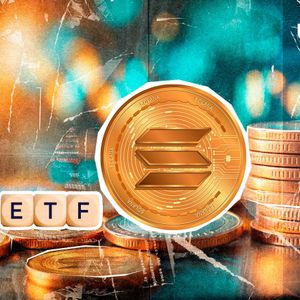BitcoinWorld South Korea Crypto Regulation: Strict Stablecoin Bill Demands $735K Capital The world of cryptocurrency is constantly evolving, and regulatory landscapes are shifting rapidly. A significant development is unfolding in Asia, specifically concerning South Korea crypto regulation . Lawmakers in South Korea are pushing forward with plans to introduce a comprehensive bill aimed at shaping the future of digital assets, with a particular focus on stablecoins. What’s Driving South Korea Crypto Regulation Efforts? South Korea has long been a hub for cryptocurrency activity, boasting a vibrant trading scene and innovative blockchain projects. However, like many nations, it grapples with the challenge of fostering innovation while protecting investors and maintaining financial stability. The proposed bill, spearheaded by lawmakers from the ruling party, seeks to strike this balance. The primary goal, as reported, is to promote healthy growth and innovation within the digital asset sector, suggesting a move towards clearer rules rather than outright prohibition. This initiative builds upon previous legislative efforts, indicating a sustained commitment from the government to establish a robust framework for digital assets. The focus on clear guidelines is expected to provide certainty for businesses and consumers alike, potentially boosting confidence in the market. Deep Dive: The South Korea Stablecoin Bill Details While the bill covers broader aspects of digital assets, a major highlight is its detailed approach to stablecoin regulation . Stablecoins, designed to maintain a stable value relative to a traditional currency or other asset, have become a critical part of the crypto ecosystem. However, their stability depends heavily on their underlying reserves and operational transparency, issues that have led to significant concerns globally. The proposed South Korean bill addresses these concerns directly by imposing stringent requirements on stablecoin issuers. According to reports, issuers will need to meet a set of 12 specific conditions to operate legally within the country. These conditions are designed to ensure the financial soundness, governance, and transparency of stablecoin operations. Let’s break down some of the key requirements: Capital Requirement: Issuers must hold a minimum capital of at least one billion won, which is approximately $734,000 USD at current exchange rates. This significant financial threshold aims to ensure that issuers have sufficient resources to manage their operations and potentially absorb losses. Executive Eligibility: Executives of stablecoin issuing companies must meet specific eligibility criteria outlined under existing financial company governance laws. This ensures that leadership has the necessary expertise and adheres to high standards of conduct, similar to traditional financial institutions. Clear User Redemption Policies: The bill mandates that issuers establish and clearly communicate policies for users to redeem their stablecoins for the underlying reserve assets or fiat currency. This is crucial for maintaining the ‘stable’ peg and ensuring users can access their funds when needed. Reserve Asset Standards: Strict standards will be set for managing the assets that back stablecoins. This includes rules on what types of assets can be held (e.g., cash, government bonds), how they should be stored, and how frequently reserves must be audited and reported. These requirements signal a clear intent from South Korean regulators to treat stablecoins with the same level of scrutiny as other financial instruments, emphasizing stability and investor protection. Why This Matters for Global Stablecoin Regulation? South Korea’s move is not happening in isolation. Countries worldwide are grappling with how to regulate stablecoins. The collapse of Terra/Luna in 2022 highlighted the potential risks associated with poorly regulated or structured stablecoins, accelerating the push for clearer rules. This South Korea stablecoin bill adds to the growing global trend of bringing stablecoins under tighter regulatory control. We’ve seen similar discussions and proposals in the United States, the European Union (with MiCA regulation), and other jurisdictions. South Korea’s specific approach, particularly the detailed conditions and capital requirements, could serve as a reference point or influence regulatory discussions in other countries. It underscores the international consensus that stablecoins, due to their potential role in payments and the broader financial system, require a robust regulatory framework to mitigate risks related to liquidity, solvency, and transparency. What Does This Crypto Law South Korea Mean for Issuers and Users? For stablecoin issuers looking to operate or continue operating in South Korea, this new crypto law South Korea represents a significant compliance challenge. Meeting the 12 conditions, including the substantial capital requirement and stringent reserve management rules, will require considerable investment in infrastructure, personnel, and legal expertise. On the flip side, for users of stablecoins in South Korea, the bill aims to provide greater confidence and security. Knowing that issuers are subject to strict capital, governance, and reserve standards should reduce the risk of stablecoin de-pegging or issuer insolvency. Clear redemption policies mean users should have reliable access to their funds. This could potentially make stablecoins a more trusted and widely used tool for payments and transfers within the South Korean digital asset market, fostering healthier growth built on a foundation of regulatory clarity and safety. Navigating Digital Asset Regulation in South Korea The proposed bill is a crucial step in the broader landscape of digital asset regulation in South Korea. It signals a shift from a relatively less structured environment to one with specific rules for key components like stablecoins. This move is part of a larger global trend where regulators are defining how cryptocurrencies fit into existing financial systems. While the bill’s full impact will become clearer upon its finalization and implementation, it’s evident that South Korea is positioning itself to create a regulated, yet innovative, digital asset market. Companies operating in or planning to enter the South Korean market must pay close attention to these developments and prepare for increased compliance requirements, particularly concerning stablecoins. This regulatory clarity, while demanding, is often seen as a necessary step for attracting institutional investment and fostering mainstream adoption of digital assets, as it provides a framework of trust and accountability. In conclusion, South Korea’s planned crypto bill, with its detailed requirements for stablecoins including a significant capital threshold, marks a pivotal moment in the country’s approach to digital asset regulation. It reflects a global trend towards stricter oversight of stablecoins and aims to build a more secure and reliable environment for participants in the South Korean crypto market. As the bill progresses through the legislative process, its specific provisions will be closely watched by the international crypto community. To learn more about the latest crypto market trends, explore our article on key developments shaping digital assets institutional adoption. This post South Korea Crypto Regulation: Strict Stablecoin Bill Demands $735K Capital first appeared on BitcoinWorld and is written by Editorial Team
















